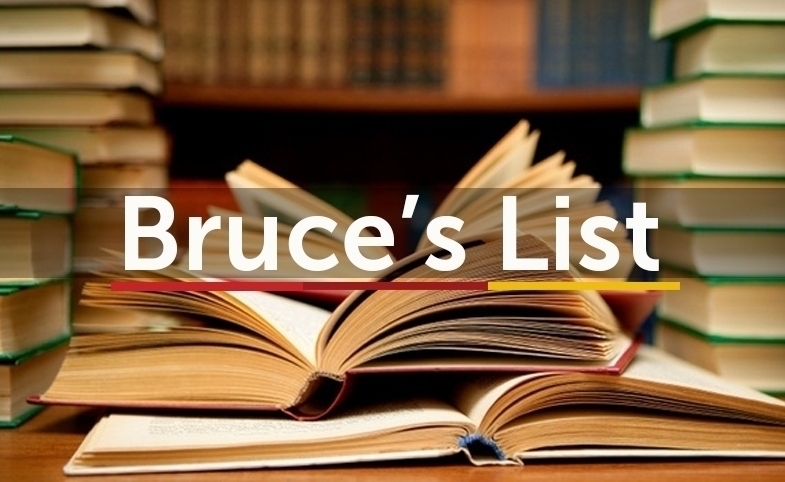Latest Must-Reads in Public Diplomacy: January 2020
Jan 14, 2020
The January edition of CPD Faculty Fellow Bruce Gregory’s public diplomacy reading list is now available. Known affectionately at CPD as “Bruce’s List,” this list is a compilation of books, journal articles, papers and blogs on a wide variety of PD topics and features a number of CPD scholars.
Highlights from this latest list include:
“Cyber Diplomacy,” PD Magazine, Center on Public Diplomacy, University of Southern California, Issue 22, Fall/Winter 2019. In this edition of PD Magazine, USC students and an array of international scholars and practitioners discuss issues relevant to diplomacy and its practice in the cyber domain. The articles divide into five sections. (1) “Equipping diplomats for the cyber age” begins with a lead article by Shaun Riordan (European Institute for International Studies) on “Cyber Diplomacy: Why Diplomats Need to Get Into Cyberspace.” (2) A section on “Cyber diplomacy’s rising stars” focuses on Qatar, Estonia, and Georgia. (3) An article by Ilan Manor (Oxford Digital Diplomacy Research Group), “Are Digital Rights Human Rights?” leads a section on “Overcoming Disinformation.” (4) “Social media: A Powerful Cyber Ally” opens with USC Blog Contributor Franklin T. Burroughs’ essay on “The Diplomatic Tower of Babel.” (5) “Preparing for the Cyber Future” features an article by Devin Villacis (USC Master of Public Diplomacy candidate), “Bottom Lines and Data Dossiers: How Big Tech Commodifies Your Privacy.”
Kyle Hutzler, America’s Cities on the World’s Stage, CPD Perspectives, USC Center on Public Diplomacy, Paper 5, December 2019. Hutzler (Stanford Graduate School of Business) contributes to the growing literature on city diplomacy with this report based on interviews with city and state practitioners and experts in subnational diplomacy. His approach is actor-centric, focusing on managerial issues and “questions of strategy, organization, and operations.” He surveys city diplomacy’s historical context and issues of constitutionality. His report then examines the relevance of city size and four categories of city diplomacy: trade and investment, goodwill, knowledge sharing, and co-governance on issues such as climate policy and border management. Hutzler’s well-researched 93-page report makes a number of recommendations, provides an analytical framework, lists references from the literature on city diplomacy, and seeks to put the practitioners interviewed “in conversation with each other.”
Matthew Wallin, “White Paper – A New American Message,” American Security Project (ASP), December 2019. In this White Paper, the ASP’s Fellow for Public Diplomacy Matthew Wallin advances three core arguments. America’s values are central to its message and under attack at home and abroad. The US is failing to uphold its values, and this failure is displayed globally in 24-hour news and social media. A new American message must be defined largely by actions not words. Wallin identifies a variety of needed changes in behavior: close the say-do gap, engage in active listening, recommit to truth, maintain leadership in science, send more exchange students abroad, strengthen diplomatic capacity, keep America’s commitments, support individual freedom, empower individuals abroad and promote collaboration, and set an example on refugees and migrants.
The full list, including works by CPD Faculty Fellows Philip Seib and Jan Melissen, CPD Research Fellows Alexander Buhmann (2016-2018) and Deborah L. Trent (2014-2016), Past Visiting Scholar Evan Potter, and CPD Blog Contributors Erich Sommerfeldt, Angela Lewis, Eriks Varpahovskis, Benjamin Leffel and Marcus Holmes, is available here.








